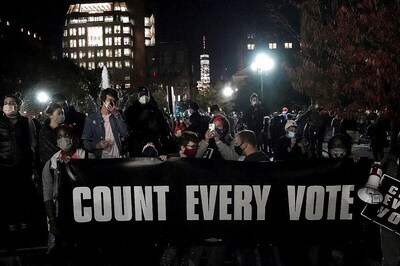
views
Choosing a Suitable Monologue

Pick a monologue that you are familiar with. If you’re able to select the monologue yourself, choose one from a play or script that you know very well. If you are familiar with the storyline, background, and characters, it will be easier for you to memorize it. If you're not familiar with any plays, try looking for a script from a movie you love, or one that's based on a book you've read.

Select a monologue that you are personally connected to. If you personally connect with a specific play or script, choose that as your monologue to memorize. This could be a script that has a character of the same gender, or is close to your age. The character may be going through an experience you’ve been in. Or, it could be a character with similar opinions that you can relate to. Choose a monologue that is physically accurate and age-appropriate. You will be able to better connect with a character that is around the same age and has the same physical characteristics.

Find a monologue that is in active voice. Choose a monologue that is active and in the moment, instead of a character telling a story or sharing a memory. A monologue in which the character is speaking to another person provides a more natural feel. This will make it easier to be in the moment and memorize the piece. A monologue that is active will be more enjoyable for both you and the person watching you. If you’re having fun, you’ll be more apt to remember it.

Keep the monologue under 2 minutes long. Why try to memorize a long monologue if you don’t have to? If you have the choice, select a monologue that will take approximately 1 minute to perform. This will take the pressure off of you and will be a lot quicker and easier to memorize.

Familiarize yourself with the play. You may be unable to personally select the monologue, or you’ve chosen one you do not have a lot of experience with. If this is the case, you’ll need to familiarize yourself with the script. Read over the entire thing, or find an in-depth summary. This will help to provide context and layers of meaning to your monologue.
Practicing the Monologue

Break down the monologue into smaller sections. Memorizing a long monologue may be intimidating. Divide the monologue into sections before you begin practicing. Memorize the first section individually, then move on to the next, repeating the process. Then, once you've memorized each section, put them all together. Make a mental note about the overall topic of each section you created. This will provide a point of reference and help jog your memory while you recite your monologue.

Use the visualization strategy to memorize your monologue. While you are reviewing your monologue, make mental images in your mind for each section you created. If at any point you forget a line from the script, think back to the mental images you created. This strategy is especially helpful for visual learners.

Play around with the tempo and delivery of your monologue while you practice. A part of the memorization process is repeating the lines out loud over and over again. While you’re doing this, don’t repeat it in the exact same way every time. Instead, play around with the lines. This will help you to keep the lines fresh in your mind and learn them subconsciously instead of mechanically. For example, recite your monologue as fast and as slow as you can, say it in a funny voice, or say with a different dialect.

Write out the entire monologue. Writing things down can increase your retention because you use different parts of your brain than when you're speaking. Writing also activates muscle memory and allows you to slowly absorb every word and sentence. So write down your entire monologue a couple of times until it stays in your memory.

Recite your monologue while moving around. When memorizing a monologue, it helps to do some sort of physical activity while you practice it. You can do something simple while you recite it, like washing the dishes or cleaning your room. This will help you to learn the monologue without giving it much thought. Make sure to keep the script nearby during your physical activity, so if you forget a line you can easily refer to it.

Record yourself performing the monologue. During one of your practicing sessions, use your cell phone, computer, or digital camera to record yourself reciting the lines. Then, watch the recording and take mental notes about your performance. This will not only help you memorize the monologue, but it will also help you determine aspects of your performance that you can improve upon. If you’re auditioning for a role or trying to get a good grade in an acting class, pay close attention to your facial expressions, posture, speed, and volume. These are important features that the judges will be looking at during your performance. It may help to repeat your recording multiple times. While listening, try to say the words along with or slightly ahead of the recording.
















Comments
0 comment